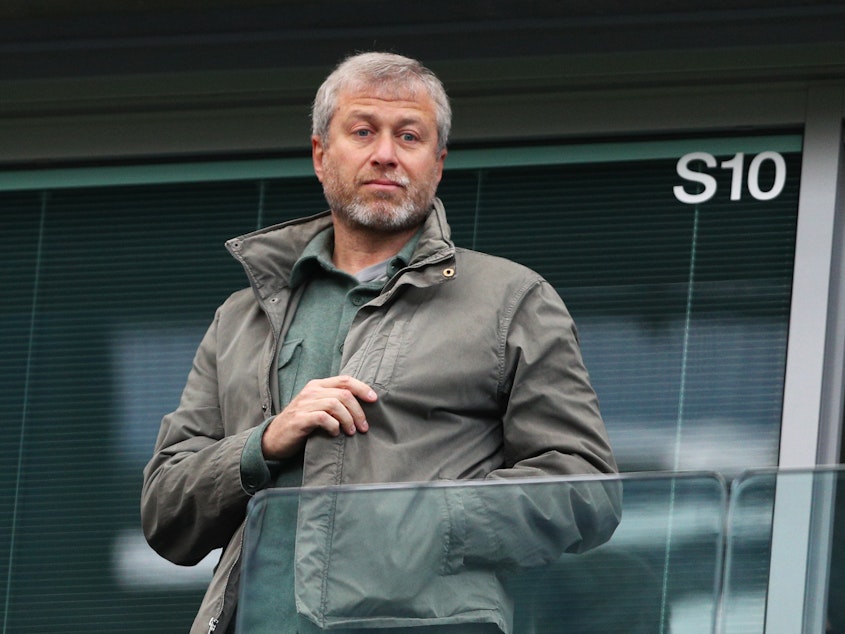The U.K. sanctions Roman Abramovich, halting his plan to sell Chelsea Football Club

The United Kingdom announced another raft of sanctions on Thursday, targeting seven oligarchs with links to Russian President Vladimir Putin.
Among them is Roman Abramovich, who the British government says has an estimated net worth of $12 billion and is "one of the few oligarchs from the 1990s to maintain prominence under Putin."
The businessman also owns Chelsea Football Club, the Premier League team that has transformed into a world powerhouse under his two decades of ownership.
Abramovich has previously denied being close to Putin and doing anything meriting sanctions, multiple outlets have reported. But the U.K. alleges that he is closely involved with several Russian individuals and entities that have played a role in destabilizing and undermining Ukraine, and says he benefitted financially from that involvement.
"This includes tax breaks received by companies linked to Abramovich, buying and selling shares from and to the state at favourable rates, and the contracts received in the run up to the FIFA 2018 World Cup," it wrote. "Therefore, Abramovich has received preferential treatment and concessions from Putin and the Government of Russia."
Sponsored
After coming under pressure following Russia's invasion of Ukraine, Abramovich said earlier this month that he was transferring "stewardship and care" of the club to the trustees of its charitable foundation.
He then announced last week that he would sell the club and put the net proceeds into a new charitable foundation that will benefit "all victims" of the war in Ukraine, with the Guardian reporting there has already been interest from several parties.
The new sanctions appear to deal a blow to that plan, as they effectively freeze Abramovich's assets and prohibit his transactions with U.K. individuals and businesses. They also ban him and any of his vehicles from traveling to the U.K.
Government officials acknowledged that these particular sanctions will impact the soccer community, and say they are taking steps to protect it.
"Today's sanctions obviously have a direct impact on Chelsea & its fans," tweeted culture secretary Nadine Dorries. "We have been working hard to ensure the club & the national game are not unnecessarily harmed by these important sanctions."
Sponsored
The government issued a special license on Thursday enabling the club to continue certain soccer-related activities, like playing matches, paying staff and allowing existing ticket-holders to attend matches — all while, as Dorries put it, "depriving Abromovich of benefitting from his ownership of the club."
She acknowledged that this development "brings some uncertainty," but promised the government would keep working with clubs and the league to keep them in play.
"Football clubs are cultural assets and the bedrock of our communities," she added. "We're committed to protecting them."
The U.K. government says Thursday's sanctions are part of its ongoing efforts to isolate Putin and his associates in response to Russia's aggression in Ukraine, and to undermine his efforts by hurting the Russian economy.
"Today's sanctions are the latest step in the UK's unwavering support for the Ukrainian people," Prime Minister Boris Johnson said in a statement. "We will be ruthless in pursuing those who enable the killing of civilians, destruction of hospitals and illegal occupation of sovereign allies."
Sponsored
This story originally appeared on the Morning Edition live blog. [Copyright 2022 NPR]



